Cardiology
A practical, concise approach to utilizing the NCEP ATP-III recommendations is presented. The text contains an up-to-date synopsis of the results of major trials of lipid-lowering drugs and a thorough review of pharmacologic treatment options. Separate chapters cover pathophysiology, therapeutic lifestyle changes, and treatment of special populations.
Management guidelines and results of key clinical trials are reviewed. Recommended approach for treatment is presented together with easy-to-follow treatment algorithms. Drug therapies are extensively discussed, with separate chapters dedicated to each class of antihypertensive medication. Treatment strategies for resistant hypertension are presented.
Clinical application of antithrombotic therapy in both arterial disease (acute coronary syndromes, acute MI, peripheral arterial disease, valvular heart disease, atrial fibrillation) and venous disease, (venous thromboembolic disease and pulmonary embolism). Results of major clinical trials and their implications for clinical practice are reviewed.
Adults with diabetes are two to four times more likely to have coronary heart disease or a stroke than adults without diabetes. Approximately two thirds of all people with diabetes die from some form of heart disease or stroke. Obesity is one of the main factor driving the incidence of type 2 diabetes.
The goal of this book is to address the challenges involved in the management of risk factors for the prevention of cardiovascular disease (CVD) with a specific focus on individuals with diabetes and/or obesity inclusive of other metabolic risk factors who have significantly higher risk for CVD morbidity and mortality. The authors provide detailed guidance for a comprehensive approach to risk reduction in these patients.
The handbook features the 2013 ACCE Comprehensive Diabetes Management Algorithms that include CVD Risk Factor Modifications and Complications-Centric Model for Care of the Overweight/Obese Patient algorithms.
This handbook aims to be an authoritative and thoroughly up-to-date clinical guide to the management of AF, including therapies to restore normal sinus rhythm, maintain sinus rhythm, strategies for rate control and appropriate anticoagulation regimens. Acute care of the AF patient will also be covered in detail. Pivotal clinical trial data will be presented, as will representative case studies.
Designed to provide clinically useful information and guiding principles to assist physicians in the treatment of the typical heart failure patient who presents most often with complex comorbidities. The authors have based their discussion of heart failure management on pathophysiologic principles whenever possible. Evidence-based guidelines, including the 2016 ACC/AHA/HFSA Focused Update on New Pharmacologic Therapy for Heart Failure and the 2016 ESC heart failure diagnosis and treatment guidelines, are reviewed in detail. In addition, clinical guidance and prioritization of treatment options are also provided on managing patients who do not fall neatly into guideline-directed therapy.
Presents the newest thinking and data needed for clinicians to reduce atherosclerotic cardiovascular disease (ASCVD) risk. This book provides detailed evidence-based guidance for treating cholesterol to reduce ASCVD with a focus on recent ACC/AHA guidelines, an overview of evidence-based treatment of other risk factors, the management of genetic and acquired lipid disorders, and complete efficacy and safety information on all available lipid-lowering agents, including clinical trial data and FDA-approved labeling.
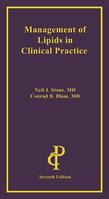
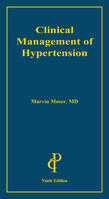
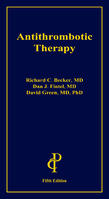
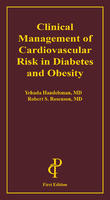
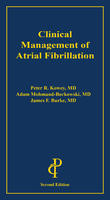
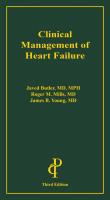
.jpg)